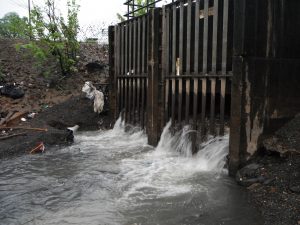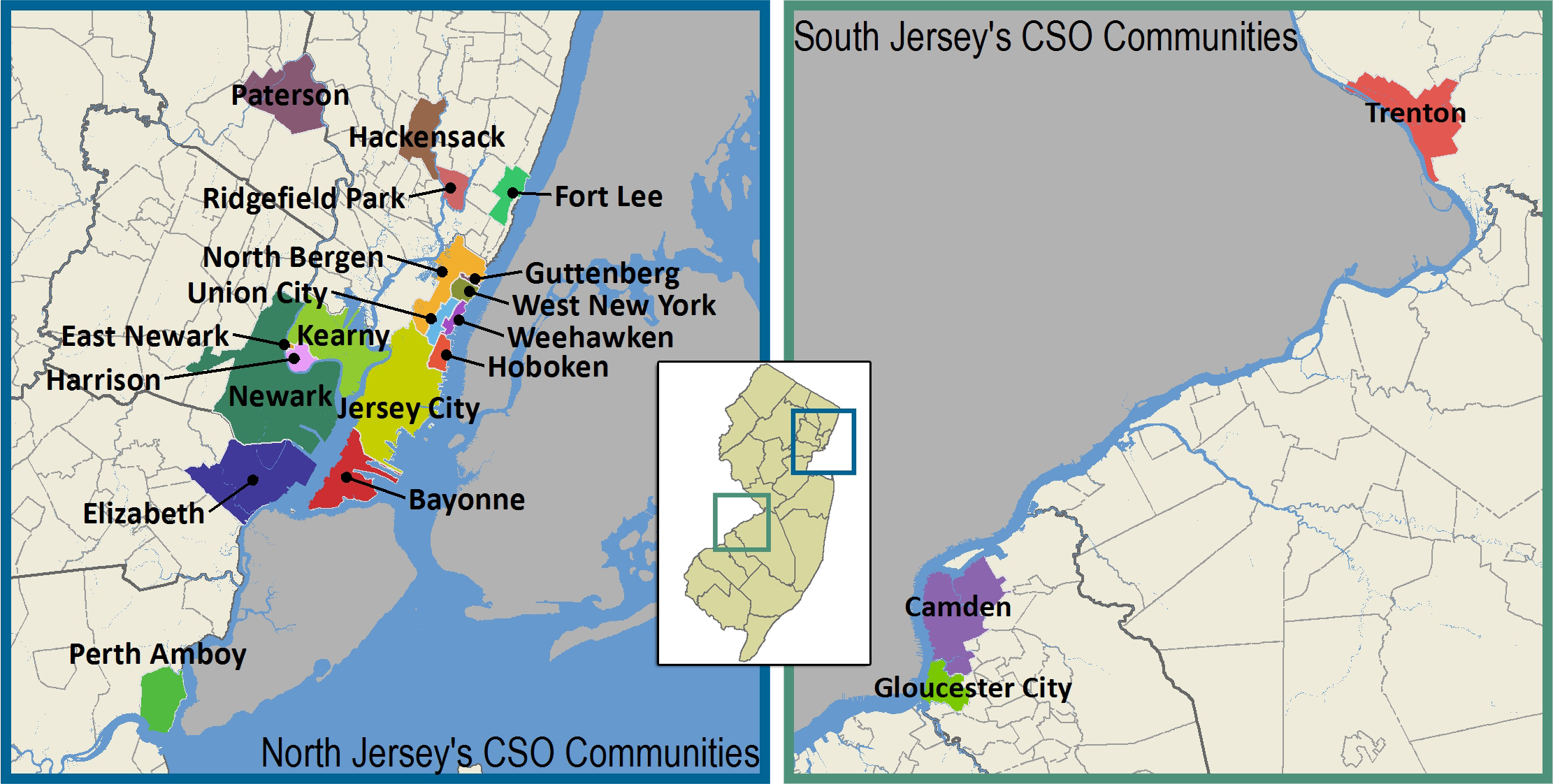Sewage-Free Streets and Rivers is a campaign and coalition encouraging solutions to sewer overflows into rivers and dirty wastewater flooding into streets and homes through collaboration with community and statewide organizations.
 We all want sewage-free streets and rivers that keep residents healthy and allow small businesses to flourish. However, when it rains in 21 New Jersey cities and towns, raw sewage pours into rivers and backs up into basements and onto streets. This is known as a combined sewer overflow (CSO).
We all want sewage-free streets and rivers that keep residents healthy and allow small businesses to flourish. However, when it rains in 21 New Jersey cities and towns, raw sewage pours into rivers and backs up into basements and onto streets. This is known as a combined sewer overflow (CSO).
In 2015, the New Jersey Department of Environmental Protection sought to address this issue by requiring these communities to develop Long Term Control Plans (LTCPs) by 2020 to reduce sewage in our waterways. These plans will be implemented through a series of five-year permits. The first one will be issued after the LTCPs are reviewed by the New Jersey Department of Environmental Protection and the public. There will be an official public input period for the next CSO permit. Implementing these plans will cost billions of dollars over the next 30 years and will have significant effects on residents and business owners for generations to come.
The people who live, work, and run businesses in these cities — that’s you! — will pay for these upgrades and should have a strong role in shaping the plans. Your voice is needed to ensure that the solutions are affordable, keep residents healthy, invest in local jobs, businesses and neighborhoods, and create more green spaces that promote climate resiliency.
We believe these plans should:
- Fund Public Participation: Each CSO municipality or sewer utility should allocate the resources needed to engage residents and small businesses in developing and implementing the required CSO Long Term Control Plans.
- Include a Public Conversation: Each CSO municipality or sewer utility should collaborate with the relevant local group(s) working to address combined sewer issues, known as Supplemental CSO Teams or Municipal Action Teams, to organize at least three well-attended and accessible public meetings on the proposed sewer infrastructure upgrades, so that all voices are heard before the July 2019 evaluation of alternatives report and July 2020 Long Term Control Plans are submitted to the New Jersey Department of Environmental Protection.
- Reflect Community Values: Each CSO municipality or sewer utility should work with local community groups, residents and small business owners to identify community priorities, and use these priorities to evaluate the solutions being selected in the 2019 evaluation of alternatives report. Before the final plans, known as Long Term Control Plans, are submitted to the New Jersey Department of Environmental Protection for approval, each municipality or sewer utility should provide ample time for residents to review and comment on draft reports, share with the community how their input was incorporated, and include this explanation in its final report.
- Deliver Local Benefits: Each CSO municipality or sewer utility should describe how its plans will include green infrastructure and deliver specific community benefits — for example, effective flood management, cost savings for residents, local jobs, green spaces for communities, and economic opportunities for local businesses.
Join the Sewage-Free Streets and Rivers campaign

